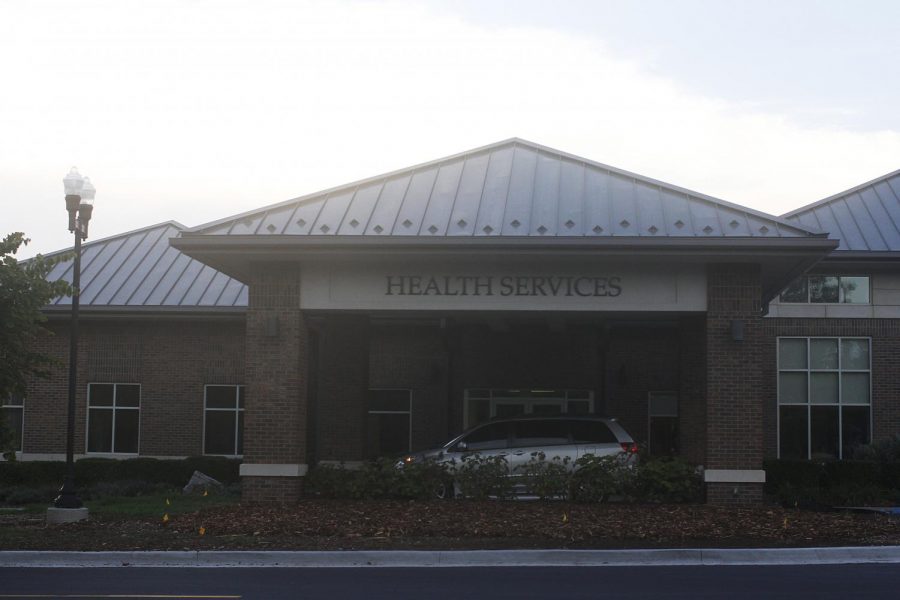Graves-Gilbert Clinic takes over WKU Health Services
August 26, 2014
After a summer of combing through bidders and ironing out a contract, WKU Health Services has been privatized.
Graves-Gilbert Clinic took over WKU Health Services Aug. 1 after the decision to privatize the health clinic came five months prior. WKU Health Services will now be renamed Graves-Gilbert Clinic at WKU.
Chris Thorn, CEO of Graves-Gilbert Clinic, said services offered at Graves-Gilbert Clinic at WKU include allergy shots, contraceptives, physicals and a small over-the-counter drug shop. No services were reduced or eliminated during the privatization process.
Graves-Gilbert Clinic still accepts most insurance plans, including student insurance, Tricare and Medicaid. Co-pays and deductibles can be paid via Big Red Card or by cash or credit.
The health clinic is now open on Saturdays and has extended hours during the weekdays. Thorn said the times would better serve the clients.
“We took at it and said, ‘You know, people don’t get sick eight to four,’” Thorn said.
Other accommodations have been made to serve patients. Bryan Russell, chief facilities officer of WKU, said the parking lot in front of the building was increased by 24 spots. The expansion cost around $150,000 and was paid with reserve funds from WKU Health Services. The parking lot will mainly be used for patients.
The staff at Graves-Gilbert Clinic has yet to be finalized, but Gary Meszaros, vice president of Auxiliary Services, said it would be less than the approximate 26 staff members that worked at WKU Health Services before it was privatized.
Thorn said four or five WKU Health Services employees were rehired at Graves-Gilbert at WKU. Meszaros said others were rehired at different places, both on and off-campus.
Howard Bailey, vice president of Student Affairs, said a psychiatrist was also added to personnel. WKU Health Services did not have one in the past.
President Gary Ransdell said about 35 companies sought information from WKU, but Graves-Gilbert Clinic was the final bidder. Ransdell said Graves-Gilbert Clinic was picked because it was a good match.
“They were most interested and I think it fit their corporate profile and their desire to serve this part of the broader community,” he said.
The health clinic is open to the entire community, but Thorn said faculty, staff and students would be of primary concern.
A subsidy of about $1.1 million used to operate WKU Health Services will now be applied to balance WKU’s operating budget for the 2014-2015 fiscal year, according to the contract between Graves-Gilbert Clinic and WKU. Thorn said he anticipates it will cost less to run Graves-Gilbert Clinic at WKU than before it was privatized, but admitted he doesn’t know the actual cost.
“We don’t know what the actual numbers will be,” Thorn said.
The contract states Graves-Gilbert Clinic will use about half of the Partners for Health building, formerly called the WKU Health Services building, to provide patient care. The other half of the building will house most of the WKU faculty of the Communication Disorders department.
Although WKU is no longer operating the health clinic, the university can still make money. If Graves-Gilbert Clinic makes more than $200,000 in profit annually, it owes the next $100,000 to WKU, according to the contract. Ransdell said he anticipates Graves-Gilbert Clinic to break even for the first few years.
WKU’s involvement does not end there. A volunteer advisory committee made up of students, faculty and staff will offer feedback to Graves-Gilbert Clinic on what it can improve on. The committee will provide feedback as long as the contract remains in effect.
The initial contract will run through 2018 with a five-year contract renewal option. Thorn said he was enthusiastic about Graves-Gilbert Clinic at WKU and hopes the relationship lasts a decade or longer.
“We think we can provide Western with quality healthcare services,” Thorn said.













